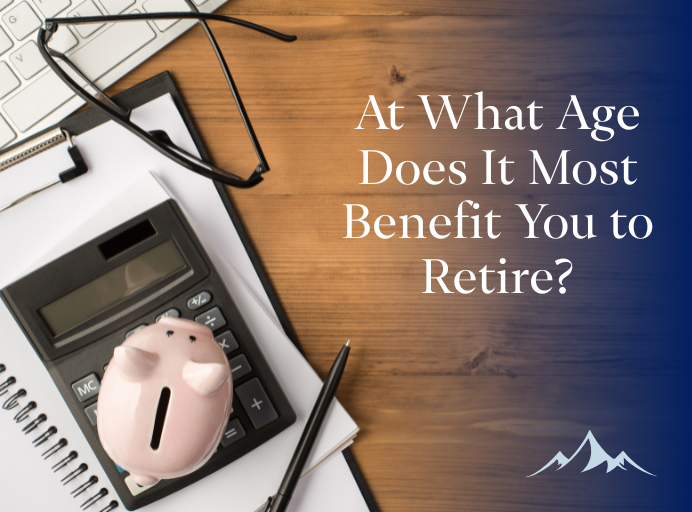
Planning for retirement can seem distant, especially if you’re early in your career or focused on more immediate financial needs. However, the question of when to begin preparing for retirement is worth considering long before you reach your later working years. The answer isn’t one-size-fits-all, but exploring the factors that influence timing may help you find an approach that fits your situation.
Why Timing Matters
One of the reasons people often begin thinking about retirement early is the potential impact of compounding earnings over time. Even modest contributions made over a longer time frame may grow more significantly than larger contributions made closer to retirement age1.
Another reason some choose to begin planning for retirement early is that they are uncertain about how long their money may need to last as life expectancies continue to grow. For example, data from the Social Security Administration shows that a person who turns 65 today has an average life expectancy of about 20 more years up from 14 years in 1940².
Of course, starting the planning process early isn’t the only path. Life circumstances, income, health, and family needs all play a role in when retirement planning becomes a priority. Some people may focus on paying off debt or saving for other goals first and revisit retirement planning later.
Different Life Stages, Different Considerations
The right time to start a retirement plan may depend on what stage of life you’re in. Here’s a general breakdown of how retirement planning can take shape across various life phases:
| Life Stage | What May Be Happening | What Retirement Planning Could Look Like |
| Early Career | First jobs, student loans, lower earnings | Learning about retirement accounts, contributing small amounts to retirement accounts |
| Mid-Career | Promotions, family expenses, higher income | Adjusting savings rates, diversifying investments |
| Late Career | Peak earnings, kids may be independent | Estimating retirement needs, tracking progress |
| Pre-Retirement | Approaching retirement age | Reviewing healthcare options, considering income sources |
| Post-Retirement | Living on fixed income, lifestyle shifts | Monitoring spending, adjusting plans as needed |
Each stage may bring new decisions. In your early years, simply opening a retirement account may be a first step. In later years, it might involve projecting living expenses or exploring how Medicare may affect your finances.
Influences Beyond Age
Age alone doesn’t determine when retirement planning should begin. Here are a few other elements that may influence the timing:
- Work Benefits: Some employers offer retirement plans that begin with your first paycheck, while others do not. This may affect when you begin contributing.
- Health Considerations: Everyone may need some form of healthcare support at different stages of life, which can influence how and when they plan for the future.
- Economic Trends: Inflation and market volatility may influence how people think about saving for the future.
- Family Support or Dependents: Supporting children or aging parents may shift your financial focus away from retirement planning temporarily.
Everyone’s retirement planning experience is different. Some people begin in their twenties; others start planning in their forties or later. What’s consistent is that the earlier you begin thinking about your future, the more time you may have to adjust your approach as your life and finances evolve.
Whether you’re just entering the workforce or you’ve been working for years without a clear plan, retirement doesn’t need to feel like a mystery. Starting to explore your options—no matter your age—can help you better understand what your future might require. Contact Vantage Point today and learn how we can help you live retirement boldly and on your terms.
Citations:
- Why investing earlier may help younger workers avoid retirement worries that plague older generations, CNBC.com, June 19, 2025
- Fact Sheet, SSA.gov, June 19, 2025
Investment advisory services are offered through Vantage Point Financial, a registered investment adviser. Registration with any regulatory body does not imply any particular level of skill. This material is provided for informational purposes only and should not be construed as investment, tax, or legal advice. Working with a financial planner does not ensure financial success or prevent loss. All investments involve risk, including the possible loss of principal. Past performance does not guarantee future results. The scenarios presented are hypothetical and are intended for illustrative purposes only. They do not reflect actual client results and are not guarantees of future outcomes. Individual results will vary. Certain financial strategies may offer tax advantages, but outcomes depend on individual circumstances and are subject to change due to tax laws and other external factors. Vantage Point Financial does not provide legal or tax advice. Consult a tax professional. Retirement outcomes depend on a variety of factors, including individual savings behavior, market performance, health events, and other considerations. Certain statements herein may reflect the firm’s current views, expectations, or beliefs, which are subject to change without notice. For additional information about our services, fees, and disclosures, please refer to our Form ADV Part 2A, available at https://vantage-point.mwdevsite.com or upon request at no cost.









